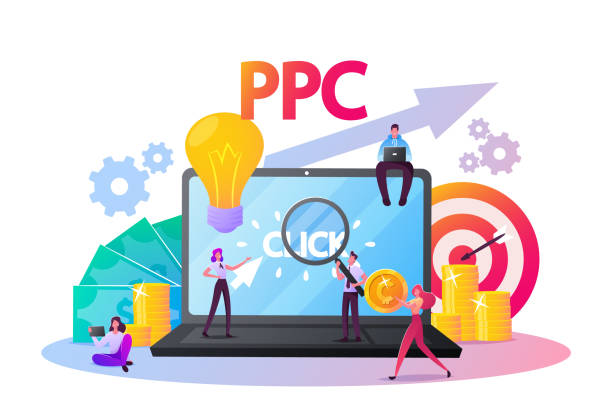
What Is Pay-Per-Click Advertising?
PPC is a web based advertising model in which promoters pay each time a client taps on one of their online advertisements.
There are various kinds of PPC promotions, yet perhaps the most widely recognized sorts is the paid hunt advertisement. These advertisements seem when individuals look for things internet utilizing a web crawler like Google – particularly when they are performing business look, implying that they’re searching for something to purchase. This could be anything from a portable pursuit (somebody searching for “pizza close to me” on their telephone) to a nearby assistance search (somebody searching for a dental specialist or a handyman in their space) to somebody looking for a gift (“Mother’s Day roses”) or a very good quality thing like undertaking software. These inquiries trigger compensation per-click promotions.
In pay-per-click advertising, businesses running promotions are possibly charged when a client really taps on their advertisement, subsequently the name “pay-per-click.”
Different types of PPC advertising incorporate presentation advertising (ordinarily, serving standard advertisements) and remarketing.
How Does Pay-Per-Click Advertising Work?
With the end goal for promotions to show up close by the outcomes on a web index (regularly alluded to as a Search Engine Results Page, or SERP), publicists can’t just compensation more to guarantee that their advertisements show up more conspicuously than their rival’s promotions. All things being equal, promotions are dependent upon what is known as the Ad Auction, an altogether computerized measure that Google and other significant web indexes use to decide the importance and legitimacy of commercials that show up on their SERPs.
Need assistance with your PPC advertisement crusades? Look at our free, fledgling’s manual for Google Ads.
How Keywords Work in Pay-Per-Click Advertising
As its name infers, the Ad Auction is an offering framework. This implies that promoters should offer on the terms they need to “trigger,” or show, their advertisements. These terms are known as keywords.
Say, for instance, that your business represents considerable authority in camping hardware. A client needing to buy another tent, hiking bed,
or convenient oven may enter the watchword “camping gear” into a web search tool to discover retailers offering these things.
Right now the client presents their hunt inquiry, the web crawler plays out the complex algorithmic computations that the Ad Auction depends on. This figures out which promotions are shown, in which request, and by which publicist.
Since you need to pay for each snap on your advertisements, just bid on keywords that are pertinent to your business, so you can make certain to get ROI from your promotion spend. A catchphrase device can assist you with tracking down the right keywords to offer on that are both prone to drive deals or transformations, and are not restrictively costly.
Pay-Per-Click Models
Generally, pay-per-click advertising still up in the air utilizing the level rate model or the bid-based model.
Flat-rate model
In the level rate pay-per-click model, a sponsor pays a distributer a decent charge for each snap. Distributers for the most part keep a rundown of various PPC rates that apply to various spaces of their site. Note that distributers are for the most part open to dealings with respect to the cost. A distributer is probably going to bring down the decent cost if a publicist offers a long haul or a high-esteem contract.
Bid-based model
In the bid-based model, every sponsor makes a bid with a greatest measure of cash they will pay for an advertising spot. Then, at that point, a distributer attempts a closeout utilizing computerized apparatuses. A closeout is run at whatever point a guest triggers the advertisement spot.
Note that the victor of a bartering is by and large controlled by the rank, not the aggregate sum, of cash advertised. The rank considers both the measure of cash offered and the nature of the substance presented by a promoter. Along these lines, the pertinence of the substance is just about as significant as the bid.
